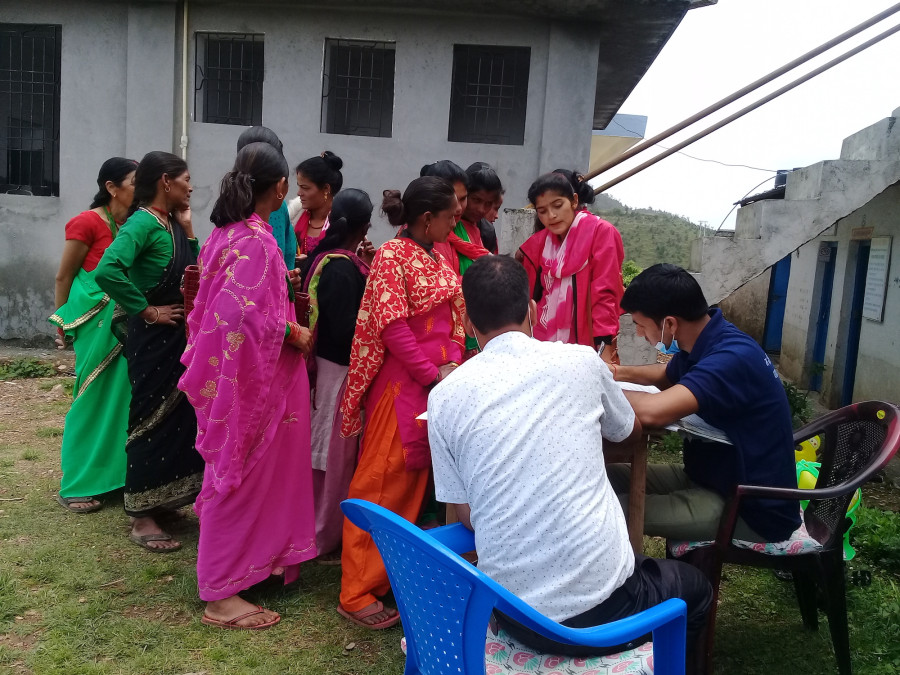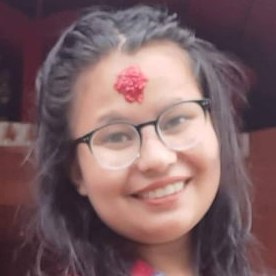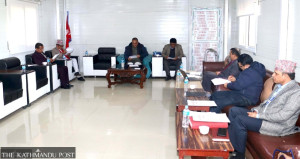Sudurpaschim Province
In their wait for son, Baitadi women keep delivering babies
Archaic beliefs of the local population that daughters are less than sons have led a majority of women to keep having babies until they bear a son, health officials say.
Tripti Shahi
Forty-five-year-old Lalmati Dhami of Sigas Rural Municipality Ward No. 5 is a mother of six children—four daughters and two sons. Her youngest son is just seven years old.
Lalmati’s first four children are daughters. She bore two more children, both sons, before deciding to not have any more children.
“Daughters are not recognised as children here. That’s why I had to keep having babies until I bore sons,” she said. “That’s how things are in our part of the world.”
A majority of families in Baitadi have a preference for sons, so the women with daughters keep on bearing children until they get a son. Sapana, who wanted to be identified only by her first name, has seven daughters. The 35-year-old from Dashrath Chand Municipality Ward No. 9 still hopes to give birth to a son.
“My family is praying for a son and I have to deliver,” she said. “I have been having babies every two years or so in the hopes of bearing a son.”
Kalpana Rana Chhetri, a member of Ward No. 4 of Dashrath Chand Municipality, says there are many couples in the village with two dozen children. The constant pressure faced by women to deliver a son has had many health repercussions, both physical and mental.
“Many families in Baitadi do not accept daughters as their children. This mindset is not only of those from poorer backgrounds but also of those who are wealthy and educated,” said Chhetri. “This has led to women compromising their health and mental stability to satisfy their family’s demand for sons.”
Lalmati, the mother of six, says her reproductive health has deteriorated over the years. “I suffer from uterine prolapse and many other health problems. Our pain and sufferings can only be understood by those who have had to deliver as many babies as we have.”
Kalpana too lives with constant abdominal pain but is yet to get her condition diagnosed.
“I will have to live with this pain and discomfort for the rest of my life,” she said.
Health officials in the district say that villagers are aware of the dangers posed by frequent pregnancies but they continue to force women to have children until a son arrives. This archaic belief of the local population that daughters are less than sons is ruining the health of many women, they say.
Harish Prasad Bhatta, the contact person of the Family Planning Programme in the District Health Office in Baitadi, said, “People are choosing to have many children not because they don’t know better. We have conducted many public awareness programmes; everyone in the community knows that they are putting women at risk by forcing them to have many children but their desire for a son and their traditional beliefs stop them from acting on what they know.”
Draupadi Badu, an auxiliary nurse midwife in Gurukhola Birthing Centre in Dashrath Chand Municipality Ward No. 1, said, “The reproductive health of the majority of women in the district is poor. Most of them become mothers in their teenage years and continue to bear children for decades until they have a son. This has left many women in very poor health”
According to Dr Basantaraj Joshi, chief at the District Hospital in Baitadi, most women in the district are suffering from anaemia, uterine prolapse and other reproductive health issues.
“Delivering more babies is also the cause of poor maternal mortality rate in the district,” Joshi said.
Suresh Sarki, in-charge at Kulau Health Post in Pancheshwar, one of the remote areas in the district, said, “Women who have delivered many babies visit health facilities with uterine prolapse and other pregnancy-related problems. Every month, five to six women visit our health post with such problems.”




 18.12°C Kathmandu
18.12°C Kathmandu















